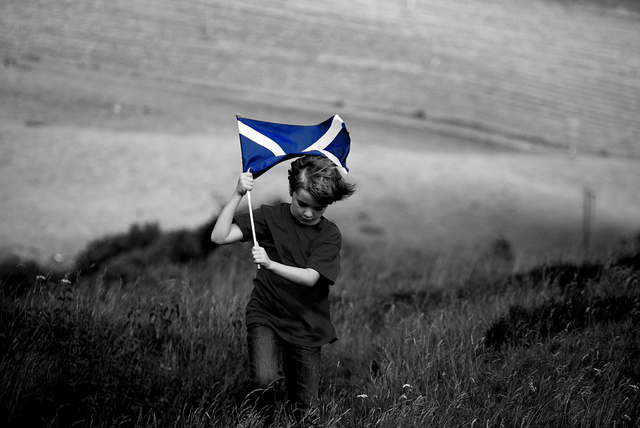
The Scottish Referendum debate (on September 18th) is hotting up in more ways than one as both sides in the campaign (https://yesscotland.net and https://bettertogether.net) head for the finishing line two weeks ahead.
NIDOS, the Scottish network of aid and development organisations has remained neutral on the referendum but has produced a policy document outlining its views on Scotland’s role in building a just world from a development and human rights perspective.
As a development education contribution to the discussion, five organisations – Christian Aid, Oxfam, Sciaf, the Conforti Institute and 80:20 Educating and Acting for a Better World – have come together to produce a resource to inform and stimulate the agenda.The resource has been widely distributed in Scotland and is intended to strengthen discussion on the wider world dimensions of the debate in the weeks ahead and beyond.
For those of us who have worked to deliver effective social and political education with a development and human rights perspective, the referendum offered a golden opportunity to do such education in realtime. However, providing young people with an opportunity to debate the issues in schools has fallen foul of education authorities.
Incredibly, as few as 11 debates on the referendum have been organised by Scotland’s 364 secondary schools in the weeks before the vote – and in some education authorities discussion has been banned altogether.
With teachers being ‘warned’ to be neutral and with 26 of the 32 councils placing restrictions on what schools can do (only 6 councils allowed school visits by both sides in the debate) critics are warning that such restrictions amount to a serious disservice to young people.
Despite the fact that Education Scotland has encouraged discussion and debate on the referendum a majority of schools appear to be opting out of their responsibilities in the debate given the political climate generated by the councils’ decisions. For example, the Highland council area, a debate at Kingussie High School due to be held on August 29th was cancelled; head teacher Ollie Bray said that he had hoped the debate would have:
“…a profound effect on the political literacy of our school community” but that “the decision [not] to run the event was taken out of our control’. It is also now unclear how these decisions will affect the BBC’s youth debate scheduled for September 11th in Glasgow.”
The official defence of the decisions by councils is that they are legally obliged to restrict activity especially in the immediate lead up to the referendum. Advice for schools on the issue was drawn up last year by education directors body ADES, School Leaders Scotland, Education Scotland and the Electoral Commission arguing that while such advice was open to local interpretation, it would be ‘very wise’ to avoid debates in the ‘purdah period’ before the referendum. As a result, councils have taken a ‘precautionary approach’ (as they were ‘very sensitive’ to accusations of bias) and interpreted the advice strictly.
Robert Macmillan, vice-president of the Scottish Secondary Teachers’ Association and Principal Teacher of social subjects in Fife summed up the frustration many feel:
“I hope that neither the legislative requirement on councils nor any guidance produced through Education Scotland acts in any way to diminish the opportunities that 16- and 17-year-olds have for participating in the referendum and wider civic engagement, to do so would be a tremendous disservice to our young people and our curricular requirement to help shape responsible citizens.”
Eileen Prior, Executive Director of the Scottish Parent Teacher Council comments:
“We have argued consistently that [the referendum] is a great learning opportunity which schools should engage in. Debates or hustings are, of course, only one means, but we would have expected there to have been more than 11.”
Susan Quinn, former president of the EIS teaching union and a supporter of the Yes campaign argues:
“I don’t understand why [councils] would take a line that you shouldn’t engage the young people in consideration of these issues – that is the whole point of education.”
Stewart Whyte, an Aberdeenshire history teacher and vice-chairman of Better Together in the area, said that the general attitude was that schools were ‘reluctant to get involved’ in the debate after the summer but that most of his pupils had sought information online and had already decided how to vote:
“We’re being advised to keep away from [the referendum] in case it could be misconstrued…I wouldn’t have had a problem had there been more debates, but I understand why the decision has been made.”
Seems to us that real world politics is an obstacle to political literacy…or is it vice-versa?
________________________________
John Dornan and Colm Regan drafted the development education resource referred to at the beginning of this blog which can be accessed on the Just Scotland? website: https://www.justscotland.org/pdf/Debating_Scotlands_Role.pdf.
